OFSP Workshop
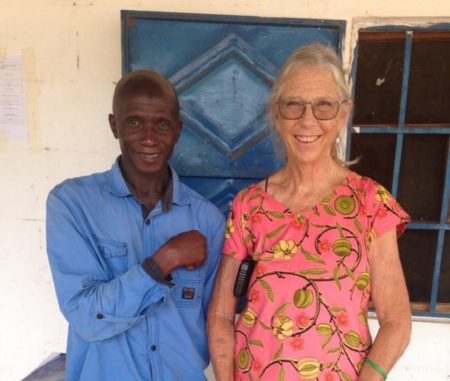
I attended a workshop with my counterpart, Jatta, and fourteen other PCVs and counterparts at Massembeh to learn about the orange flesh sweetpotato (OFSP). The white sweetpotato is a common food throughout The Gambia, but doesn’t have as high a nutritional value of the OFSP, so PC has been encouraging the consumption of OFSP for better health. This two day event was a cross-sectorial workshop with PCVs from agriculture, health and education in attendance.
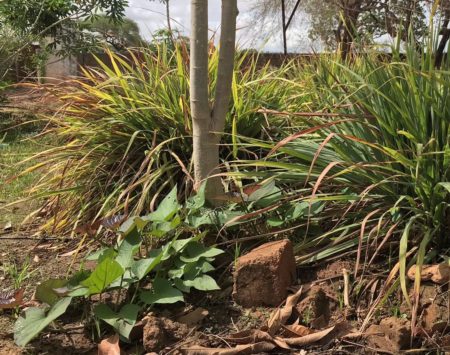
If you have been reading my blog posts for awhile you have noticed the abundance of acronyms – PC loves to use acronyms. One fun fact I learned at this workshop was that sweetpotato is spelled as one word, but I guess the acronym OFSP was created prior to having Bah2, the Agriculture Expert for PCTG (Peace Corps The Gambia) share that tidbit.
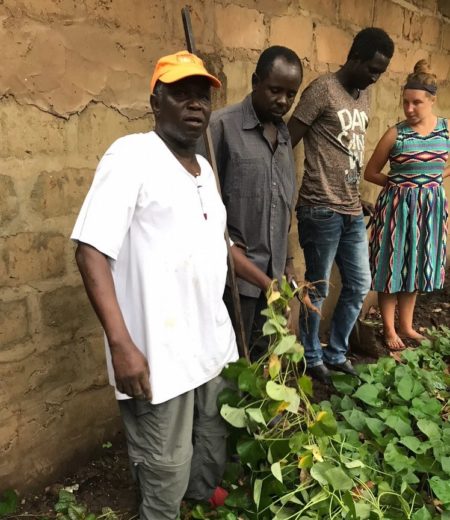
We began the first day with Bah2 giving a powerpoint presentation about the origin, economic importance, local cultural practices, growing methods, pest management issues, marketing strategies, and other challenges to promoting the OFSP here in The Gambia. Fortunately, this information is also available for download from the PCV library, or in manual form to have at our sites. The objective of this workshop was for PCVs and counterparts, to return to our villages and share our knowledge about this “super food” to our communities. We each received 20 OFSP cuttings to plant in our home gardens, with the goal of increasing by ten fold in one year the amount of OFSP vines growing nationwide.
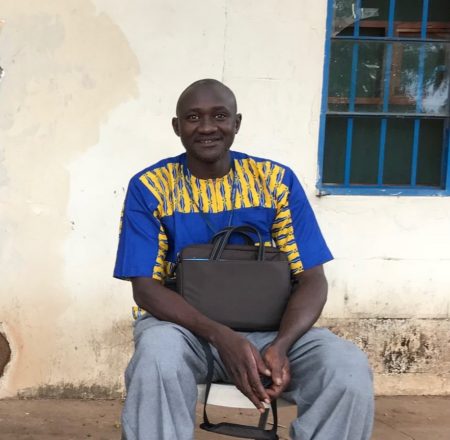
Next, Katim talked about the nutritional benefits of OFSP and the importance of making sure children and women get their fair share of this food. One cultural practice is for the head of household (men) to receive the largest portions of each meal. Unfortunately, that practice is short sighted since the women generally do as much or more physical labor than men, and if children don’t receive adequate nutrients that will have lifelong consequences. One way to mitigate this problem is to target women when teaching about the benefits of growing OFSP in their gardens and how to propagate the vines for future harvests. It is thought that if women understand these nutritional benefits, they will make sure everyone gets to enjoy the OFSP.
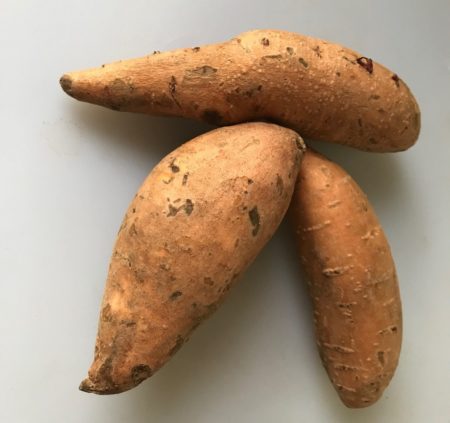
The OFSP has a good sweet taste (Gambians love sweet foods), and is rich in beta-carotene, an excellent source of Vitamin A. They contain the Vitamin B-complex, Zinc, Iron, Magnesium, Potassium, Calcium and help improve resistance to infectious disease. They are considered a “good carb” for regulating blood sugar levels to combat diabetes, which is a problem here. They generally have a soothing effect on the stomach and the intestines, managing stomach ulcers, another common ailment. Moreover, the roughage in the sweet potato helps prevent constipation which may lead to acid formation. When constipation is prevented, there is no acid formation to cause an ulcer. The anti-inflammatory and soothing properties of sweet potatoes also reduce the pain and inflammation of the ulcers.
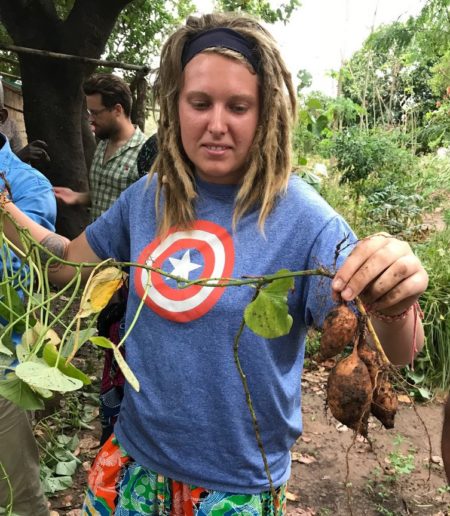
The first afternoon, after a short rain storm, we spent time in the Massembeh demonstration garden checking out the OFSP herbaceous perennial vine, with heart shaped edible leaves and the tuberous roots. We selected vines to be propagated from healthy plants that were 2 to 3 months old. We cut the vines into pieces with three to five nodes, and removed the leaves from the nodes to be planted under ground. The crop is sensitive to drought, so that was the reason this workshop was held at the beginning of the Gambian rainy season.
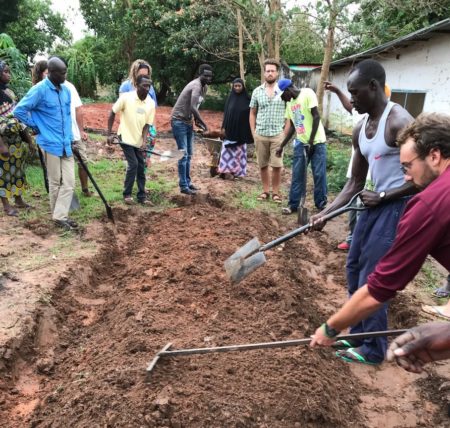
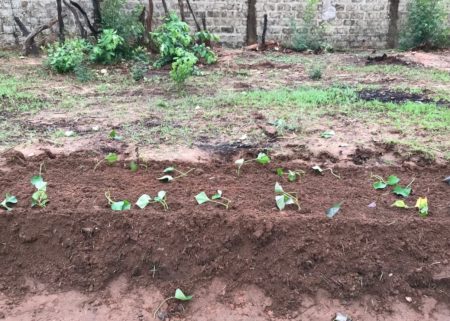
We created a raised bed, and planted 20 starts to practice the techniques we will be teaching when we return our home villages. Community counterparts are the links that sustain the development PC endeavors to create. PCVs stay at their local sites for two years, and the success of any project depends upon host country nationals being committed to the long term advancement of newly introduced concepts. I have been very impressed with the enthusiasm of the counterparts that attend the PC workshops, and the follow through I have observed when they return to their communities.

After dinner we were treated to an impressive lightning display, accompanied by thunder and torrential rains for a couple of hours. The photo above is from the web, but definitely represents the show we experienced. Rainy season can be a magical time, as a storm blows in, the sky lights up, the pouring rain washes away all the dust, and then when it’s over the air is so refreshing.
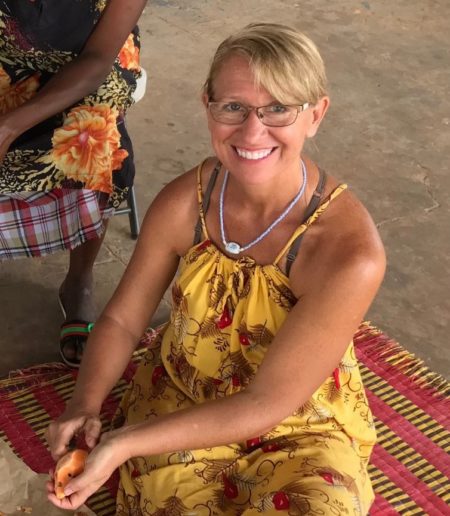
The second day of the workshop we enjoyed cooking and eating the OFSP. We were divided into three groups and created delicious concoctions – Palaver Sauce, Mashed OFSP, & Fritters. Eating was the best part of the cooking experience, the three recipes complimented each other and created a great meal.
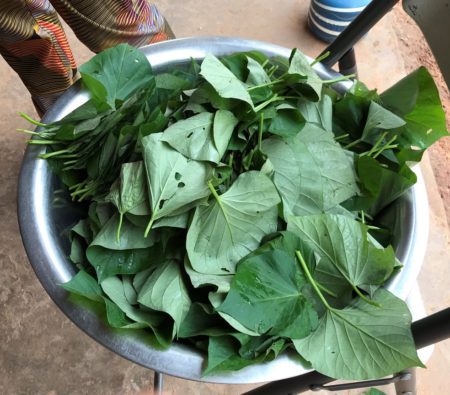
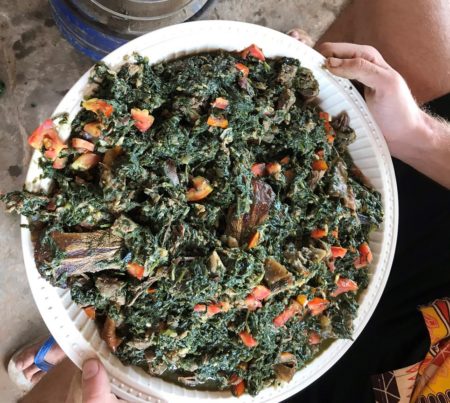
Recipe for Palaver Sauce
INGREDIENTS: OFSP, cooking oil, dried fish, onion, tomatoes, salt & local seasoning
PROCESS: wash leaves & cut into very small pieces – cut onions & saute in oil until soft – add leaves & diced tomatoes – cook over low heat for 20 minutes – season to taste.
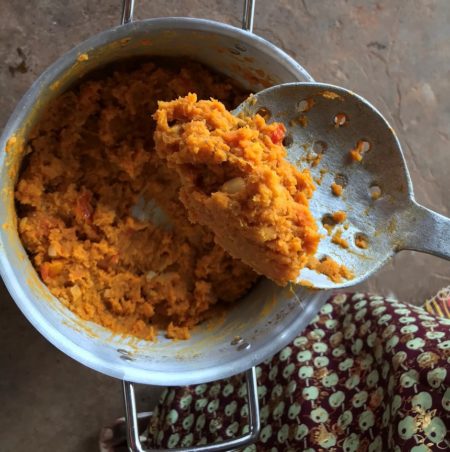
Recipe for Mashed OFSP
INGREDIENTS: OFSP, onions, oil, salt & local seasonings (tomatoes, peppers, other vegetables can also be added)
PROCESS: peel & wash & cut OFSP into to cubes – boil OFSP until soft – cut onions & saute in oil – drain OFSP & add onions – mash well & season to taste.
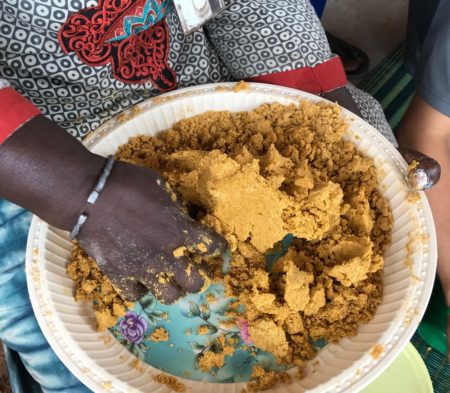
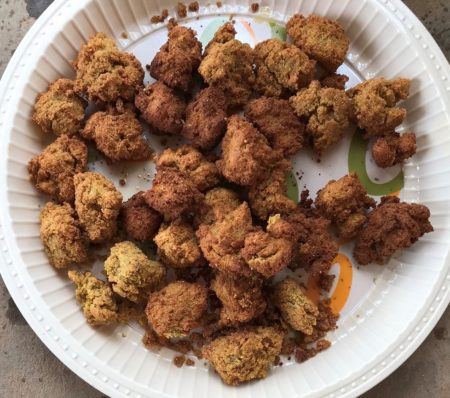
Recipe for OFSP Fritters
INGREDIENTS: OFSP flour, wheat flour, yeast powder, sugar, butter, milk, eggs, oil,
PROCESS: mix OFSP flour, wheat flour, sugar, yeast in bowl – cut butter into dry mix – beat eggs lightly & add to mixture slowly – add milk a little at a time while kneading gently until it becomes a smooth mixture – heat oil – drop balls of dough in hot oil until crispy – drain.
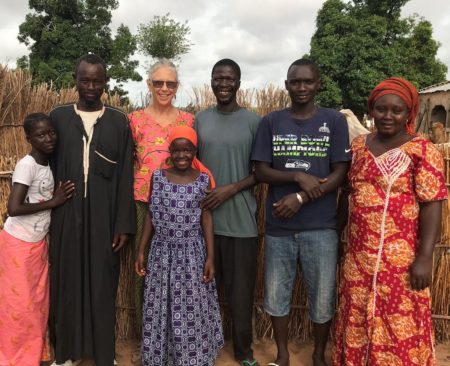
The day after the workshop I traveled with Polly and her host dad (who was her counterpart for the at the workshop) to their home in the Lower River Region. Polly is an Education PCV, and is completing her two years of service next month. This was my first time staying overnight at another PCV site and I got to sleep in a thatched roofed hut, which is definitely cooler than the tin roofed row house. I helped them plant their 20 OFSP starts, and taught them how to make compost to improve the soil in their garden. Polly’s host dad is very receptive to learning agriculture skills to grow food for his family. We also shared my photos and recipes with her host mom, so she will be able to make the yummy OFSP dishes when they harvest their crop.
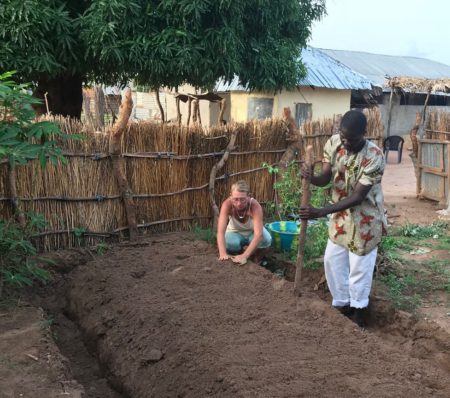
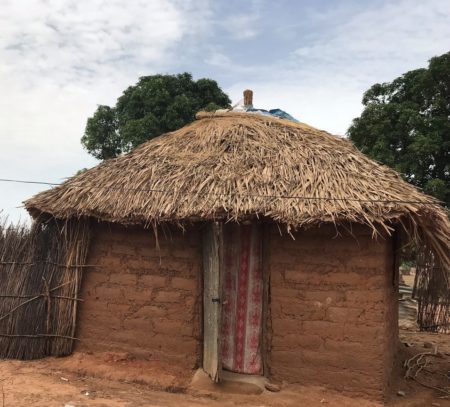
I’ve been in The Gambia for over nine months and am beginning to feel like I can navigate this PCV experience. It’s truly an adventure I would recommend to others who are interested in contributing to another culture, and gaining a new perspective on what it means to be an American.
2 thoughts on “OFSP Workshop”
Thank you for sharing your experience as a PCV. I Absolutely love reading about Gambia.
I was a Peace Corps Volunteer in The Gambia from 1971-1972, teaching Science in a Jr. Secondary School in Gunjur, Kombo South, Western Division.
This experience changed my life!
Comments are closed.